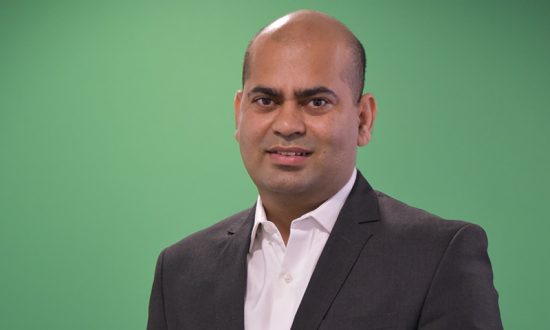Raghuvir Gakhar is the CEO of PC Financial, a digital financial services platform. In his present capacity, he is responsible for overall business management, growth and continuity. Raghuvir aims to make PC Financial a successful Non-Banking Financial Company (NBFC) with a good track record. He wants to serve all the people who are looking for a small ticket loan for immediate financial requirements and emergencies through the company. Known as one of the youngest CEOs in the country, his mission is to contribute to financial inclusion projects that impact upliftment and nation-building. He wants to sustain the position of the company as the most credible digital lending app in India.
More than one year of coronavirus pandemic has left many people with almost empty coffers either due to job loss, shutting down of a business, salary pay cuts or hospital expenses. People have lost their lifelong savings due to unprecedented circumstances. The pandemic-induced financial uncertainty has made it obligatory to assess the losses and what is left to rejig the future financial plans.
It is a different reality for every one of us as all of us have suffered a different loss. While losses may not have been the same but their result is the urgency to rethink financial priorities. The pandemic is yet far from over, India has seen a deadly second wave and vaccination drives are still underway. Given the uncertainty of current times, here are the ways one can ensure financial stability by beginning to take small steps today.
Investment in Insurance Plans
These trying times have made us realize that our physical health and that of our loved ones is one thing that matters the most. As the country witnessed around three lakh COVID-19 positive cases every day for a month, one must realize how grave the situation is. It is important to prioritize financial stability to ensure a guard against unforeseen crises like the second wave.
We witnessed that the average cost of 15-day hospitalization is around Rs 800,000 to Rs 1,200,000 and for the person with comorbidities, the cost can go up to Rs 2,500,000. It is unimaginable to pay for such a hospital expense from a monthly salary if you are not covered under insurance. While one may not be able to stay protected against the diseases but one must cover themselves and their family members with a comprehensive health insurance plan with the adequate sum insured.
Furthermore, one must invest in a life insurance plan if you have financial dependents. The COVID-19 outbreak has made us realize that life can be fragile for all of us equally and protection plan like term life insurance is a necessity as the dependents are secure in the case of a demise of a breadwinner of the family. It is best to get a cover that includes the maximum sum so it can cover the basic needs in your absence.
Building Emergency Fund and Reworking Portfolio
For the first time across the world, we have seen strict months-long lockdowns to contain the spread of deadly coronavirus. It has resulted in people having to bank upon their savings when a source of income was no longer available with the shutting down of businesses overnight. The current crisis has made us realize the importance of maintaining an emergency fund. Come what may, one must always have a certain amount of savings in liquid to put into use during the difficult times which may last longer than expected. Hence, maintain savings that will help you afford a living for at least six months without monthly income.
The current times have also brought upon the need to rejig investment portfolio as the lockdown has changed the risk tolerance. You will need to align your investment portfolio in line with the new realities. You must diversify your investments and make short-term investments that can be liquidated whenever required. Trading when the market is down can be dangerous if you are not well informed. It can result in uninformed decisions, eventually causing bankruptcy. If you are not sure of equity markets, insurance plans and treasury bills offer guaranteed returns.
Managing Loans
We have seen people struggle to pay back their loans amid the pandemic. Even though the rbI announced several measures to relax borrowers’ debt-related stress, it doesn’t change the fact that the loan has to be paid at a later stage. These times have made us realize that we cannot take loans without planning to fulfill our life goals. One must maintain an adequate emergency fund for repaying the debt, minimize unnecessary loans and avoid borrowing that can’t be repaid. Some smaller ways include avoiding reckless usage of credit cards and ensuring credit score above 750-800 by timely debt repayments to get the best loan deals in the future.
One must note that pandemic has led to an unprecedented financial crisis at a pace never witnessed before. It is estimated that COVID-19 might stay here for another three to four years, therefore it is important to maintain a positive outlook without giving up. Even if you think you are in a situation that cannot be solved, especially financially, think again. There are always platforms that exist to offer financial help. Nevertheless, as long as you are not in such a situation, follow the abovementioned steps and plan a safe financial future.


